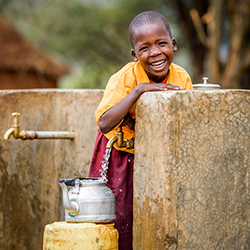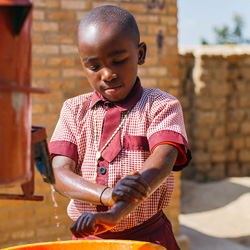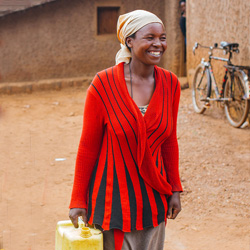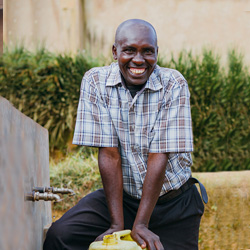Rwanda
Water, Sanitation, and Hygiene at Rural Schools and Health Clinics
Even with its stunning beauty and rich natural resources, much of Africa is still ravaged by its limited access to safe water supplies. Approximately 750,000 children die each year from diarrheal diseases alone in Sub-Saharan Africa. The focus of our work in Rwanda centers on helping provide sustainable water solutions for schools and health clinics. More than 80% of Rwandans live rurally with the majority of schools and health clinics operating without access to adequate water, sanitation, or hygiene. We use a relatively simple model for our projects that focuses on local buy-in and long-term community maintenance. Each community receives a 40,000 liter underground rain-harvesting tank. Water is captured from the roof of the school or health clinic, run through a simple filtration system, and stored within the tank for use throughout the year. The community buy-in includes the provision of on-site pit latrines, for which we provide hand-washing stations along with support for basic hygiene education. We are aware that this project does not fix all problems in any given community as it relates to water, but the effects of having students attend a school with water that did not previously have it can hardly be overstated. Equally so is the impact on health clinics and maternity centers that previously operated without regular access to water—an almost incomprehensible thought in the developed world. In just the first year following the provision of water, sanitation, and hygiene to a school, student absentee days due to illnesses typically drop by between 20-25%. Similar effects, though more difficult to quantify, can be seen when water for hygiene and sanitation are made available to health clinic staff for aiding in medical procedures and birthing rooms. The long-term success of our work is dependent upon the local community taking ownership of their own water resources. As such, all of our projects are directed with Rwandan leadership and completed by local labor with local materials. A typical project for us costs about $4000, with the local community providing about $1000 of this amount. If you are interested in sponsoring a specific school, contributing generally toward our work in Rwanda, or would like more information about our projects, click on the link below or email us at Africa@waterforlife.org



